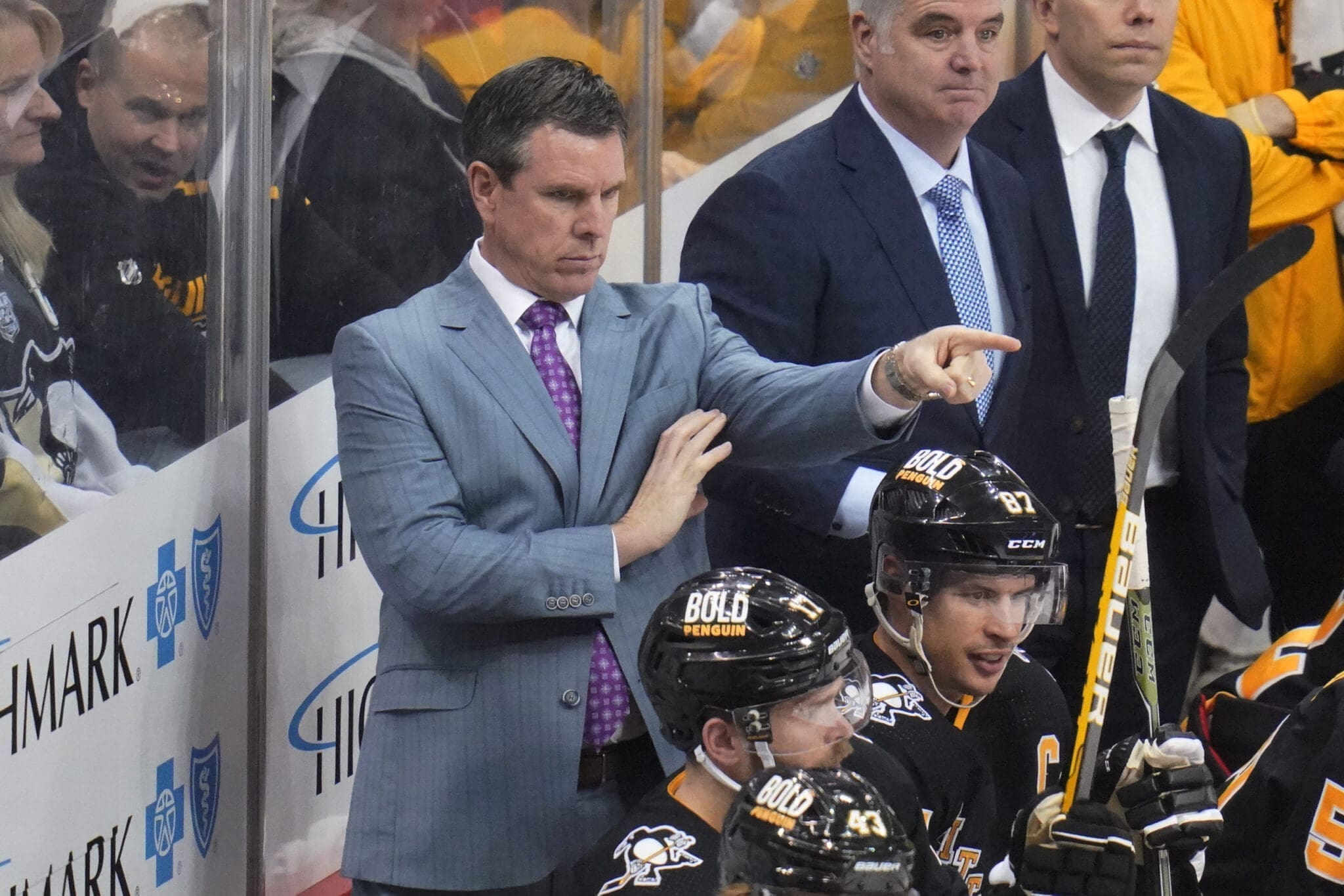Penguins
Kingerski: Penguins’ Sullivan Changed the Game, Deserves More Credit

NHL coaches are hired to be fired. Like clockwork, every three years, teams change coaches. Really good ones might get four years before messages get stale, players tune out, and the situation requires a new voice. Yet, on Tuesday, with a new three-year extension, the Pittsburgh Penguins committed to head coach Mike Sullivan through 2026-27, which will be his 12th year.
In recent times, only Barry Trotz, who served 16 years in Nashville (1998 to 2014), and Lindy Ruff, who helmed the Buffalo Sabres for 14 seasons and part of a 15th (1997-2013), have survived the ever-awaiting guillotine longer.
Being an NHL coach is incongruous with stability. The average tenure is only 2.4 years.
Not only has Sullivan molded the Penguins organization through two GMs, but take a gander at the rest of the NHL. The league is still chasing the 2016 Pittsburgh Penguins template.
Sullivan and the Penguins changed the game, something for which they are not given nearly enough credit.
That was all Sullivan. And the Penguins coach has earned the right to be discussed not only among the best coaches working today, but he should soon enter that conversation of elite coaches who left an indelible mark on the game.
Mike Sullivan Praise from the Best
During a chat with PHN during the pandemic, all-time winningest coach and hockey guru Scotty Bowman had effusive praise for the Pittsburgh Penguins coach.
“(Sullivan) has a feeling of the game. He knows when guys are playing above their peak,” Bowman said. “You can’t teach that. You have to know your players. That’s (hockey) IQ.”
Bowman called Sullivan a “no-nonsense guy” who has a blueprint and asks players to follow it. He also isn’t afraid to try new things.
Perhaps most importantly, Sullivan should be given great credit for the NHL lurch towards speed. Teams were still trying to beef up, to grind down opponents with tougher players, and then Sullivan unleashed the Penguins.
The Penguins’ speed in 2015-16 caught the league by surprise. Trevor Daley, Carl Hagelin, and even Phil Kessel had elite speed. Even the fourth line with center Matt Cullen played at high speeds. The revamped team game also allowed Sidney Crosby to turn up the volume on his game.
There was talk about Crosby’s slump or unhappiness for much of the previous year. Until Sullivan arrived, and the Penguins played a forward, attacking game.
The forecheck was oppressive. Teams chased the Penguins. They didn’t catch them.
“(Hockey people) were like, ‘How the hell does this team win?’ On paper, they didn’t have the talent,” Bowman said. “Speed burns, and (Sullivan) made it burn,” Bowman praised Sullivan’s Penguins revamp in 2016.
Pittsburgh Penguins Context
Sullivan was in rare form on Tuesday as he zoomed with the media. Several answers, including one to PHN, were expansive, insightful and pulled back the curtain just a little into the sometimes heated conversations with assistant coaches and players.
“I just believe in being honest and candid with our players. I think an important aspect of what we do is building relationships. And when you think about it, in a lot of ways when relationships grow and develop over the course of time, they should get stronger, right,” Sullivan said. “And when you go through adversities and challenges, throughout the course of your experiences–and you get on the other side of those tough times together–usually relationships get better, get stronger.”
With 297 wins, Sullivan will soon reach the 300-win plateau with the Penguins. He’s already just one of four American head coaches with 300 career wins and ranks 45th all-time. He’s the only American coach to win multiple Stanley Cups.
Bowman had 419 wins with the Montreal Canadiens (and 410 with the Detroit Red Wings). At current pace, Sullivan should catch either of those marks in two seasons (Overall, Bowman had 1244 wins in 2141 games coached).
The gold standard with one team is Al Arbor, who had an extraordinary 739 wins in two stints with New York Islanders (and one win as an interim coach in 2007-08). Sullivan may not get there, but the salary cap era carries a unique set of challenges.
If Sullivan finishes the next two seasons and then his three-year extension, he’ll have finished most of 12 seasons. Not bad for a guy who was hired as the WBS Penguins head coach after nearly a decade as an assistant under John Tortorella but spent only a few months in WBS before getting the NHL bench.
During his playing days, current development coach Matt Cullen called Sullivan “The best Xs and Os coach I’ve been around.”
With a unique blend of psychology, hockey sense, leadership, and chalkboard smarts, it is time Mike Sullivan entered the chat as one of the best, if not the best, coach working. Should Sullivan continue this path over the next five seasons, his name should also be mentioned among the greats.
Of course, another Stanley Cup wouldn’t hurt, either.












